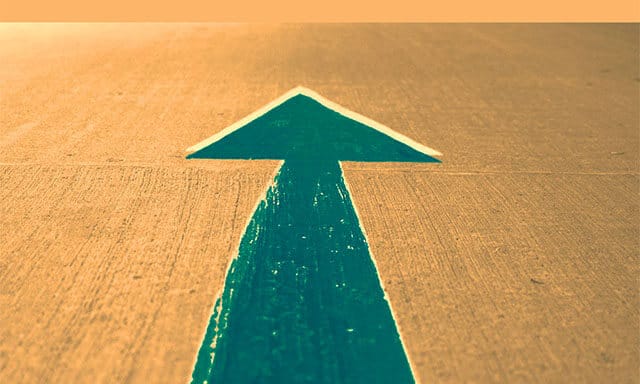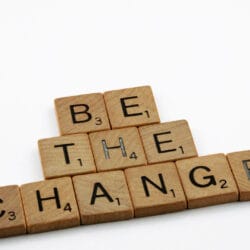When we want to make a difference too often we think it is about making…
When we understand how our human development works we can see why protests lead more to anger than actual change.
“The world has gone mad”.
This isn’t the first time we have heard that statement. If we step back through history we will find that the world has often appeared to be on the verge of destruction, yet here we are today, alive and well.
We live in a time where peace on earth is more prominent than ever before, where we live amongst different cultures, where we have more comforts, leisure time, life expectancy, wealth, and opportunity than ever before.
So, why are people so angry?
To truly understand what is going on we have to look back at our innate animal behaviour and human development.
Understanding Human Development To Understand Why Peaceful Protests Lead To Angry Riots
We are born with one primal instinct, to survive. If you look at any animal species in the world they have all evolved ways to survive, from calling sounds, poisons, peacocking, disguise, and many more.
We, humans, are the greatest problem solvers there have ever been. We’ve consistently found ways to survive and improve. At first, that was often in terms of survival of the fittest, like most animals, but once our climate allowed it we found ways to create civilisations that would allow us to survive in much greater numbers.
We found ways to create and advance our quality of life, and we are still doing that today. Today is just a test of that development, to find better ways still to survive into the future.
So, if we were best suited to survival through developing civilisations then why are we always fighting amongst ourselves?
One word. Ego.
Whilst we know we have more chances of survival by scratching each other’s back, we also have a built-in ego that feeds our desires to survive ‘better’ than others. If our status is higher we have more chance of surviving than those on the poverty line.
We’ve gone through a slow process towards building civilisations that could work together. Our bloody history finally led us to that realisation that we are better working together than against each other.
Yet, we still have an innate desire (or fear) that tells us we need to compete for our survival.
In the modern world, this led towards businesses that would capitalise on consumerism. In the past, ‘tribes’ were effectively businesses, and some were wiped out so others can gain more territory. Even recent enough wars of the past century tell us that this is still routed within our survival instincts.
The Forward-Thinking Challenge Course

Join our foundational course that will help you think differently and ahead of the curve, with actionable challenges that help bring a forward-thinking, adaptable and innovative edge to your life, business, or brand. Learn More
Yet, wars also bring us together, eventually. They can lead towards a realisation that peace prevails and even fuel progressions within society (see why tough times fuel innovation).
Businesses of today are a LOT more civilised than they used to be because they are developed from a base of law & order, structure, and hierarchy.
Each time we progress as societies in human development we find that it comes from a desire to move past the current status quo. Once we get too comfortable we become too stagnant. Law & order and hierarchy were too restrictive for our individual minds to feel like they can grow further.
This is the ego expressing itself. It thinks ‘if I stand still I will become a target’. It’s a bit like your money being worth less in value as time goes on. We are forced to work more to ensure we can survive easier, unless we can find a better way, and this led towards the progression of individual status-driven ego.
We saw more and more people seek to break out from this societal structure to feed their own ego, which was necessary for development at that time, in ourselves and in society.
Yet, what we are seeing today is the cross-divide of another advancement in human evolution (the green stage). It’s happening faster because technologies that have been developed by the previous advancement (the orange stage) have allowed it to.

We are more educated than ever before. We have access to more information than ever before (although we can also become more miseducated through fake news than ever before too).
This access to education has led a growing number of people to become more self-aware of their own needs. Instead of just working for societal or human survival needs, people today want to have more purpose in their own life, and this has seen the building of ego we see during this orange and green stage.
This may have started innocently enough in desires to quit the 9-5 or to ‘go our own way’, and it also led towards the building of material consumerism which businesses fed into. Yet, as ego grew, as the need for personal status developed, it led towards the competitive, yet civilised, society that would slowly feed into the public consciousness.
Capitalism, stemming from the industrial revolution through to the technological revolution, has brought about the comforts and quality of life many of us possess today and largely take for granted.
Yet, it’s also been the beast that has fed greed (and invoked anger), but in order to get to the next stage in human development, it was entirely necessary.
We wouldn’t have been able to get to the point of self-awareness if it wasn’t for the technological advances (and therefore education) that the orange stage brought.
However, the beast remains. It has fed our ego to new heights (and created the 11 modern social dilemmas of our time).
You can see an example of this in how negativity and fake stories sell in the news. The news is seldom nice, it’s always seeking to be heard, to capture attention. The more competitive it is to be heard the more we see sensationalism feed into stories (and the more these stories subtly influence us when spread through our social media streams).
Technology has taken us to new levels, both in good and bad forms. We now know more about our fellow humans from different cultures and backgrounds than we did before technology allowed globalisation, but we also now have a cross-divide of so many opinions that are fighting for space to be heard.
We haven’t yet truly learned how to engage together as a global society, and our planet is now suffering the consequences of our selfish actions and our need to develop our own ego.
We create and use more energy than ever before and business is still run seeking profits at any cost, but it is slowly (or quite rapidly in human history terms) changing.
Self-awareness is building and spreading, and people are waking up to the costs of developing without measures of sustainability. The green stage is beginning to come of age.
If civilised society and hierarchal structure were the much-needed collective bedrock of the blue stage after times of power tribes and disorder before that (the red stage), then today’s humanitarian-led awareness (the green stage) is the much-needed sustainable leveler of the status and profit-driven orange stage.
So, if this is where we have reached in terms of societal human development then why do peaceful protests lead towards angry riots? We should be more relaxed and together right?
How Peaceful Protests Lead To Angry Riots
We are essentially babies in this relatively new green stage of human development. Many people haven’t reached this stage yet. We should remember that. Something you see might not be what others see. A plight for goodness might be seen as a scary change to someone else stuck in a particular bias or paradigm.
Whilst those who are aware enough to see the needs of this ‘green thinking’ stage of human development, and might be well aware of the limitations of previous stages (such as how capitalism can breed destruction to our environment, or how hierarchy stemmed freedom), they also might not be aware of other limitations of the consensus-led humanitarian mindset.
When in this stage of human development, we can think that protests and raising awareness is the right thing to do, to raise awareness for social justice or for our rights to our own freedom etc., and we would be right in principle.
For many years people have been subject to discrimination without a voice, or the planet has been slowly degraded, and modern-day social media-led activism can bring people together to fight for their voice.
This desire for positive change is clearly admirable, and underpinned anger is also understandable when people feel controlled or helpless, but whilst this article is absolutely not disparaging people’s will to find free will, it is looking at why protests don’t really help drive the change they promote, and part of this is missing the unconscious hypocrisy in this green thinking ‘activism’ stage of human development.

As social media has evolved the ability for literally anybody with a social media account to become a voice (or a part) of a social movement has given many a sense of purpose, but it also leads to such easy divisions such as cancelling culture or creating fake news.
How can people with such a positive desire for change end up becoming so anger and divisive without seeing it?
Well, the more people become attracted to or driven by what they see on social media platforms the more it intensifies within them.
What happens is there comes a form of unconscious performativity where people originally spread messages and fit into bandwagons, but in time these identity groups can become a dangerous thing as they can easily create echo chambers where people think they are standing up for something only for it to feed this collective ego.
The problem with a collective ego in people that think they are doing good is it can lead to cultism. It can become a witch hunt against anyone who doesn’t align (anti-government, anti-elite, anti-you), where threats of the group (or mob) will cancel you if you speak out against them or have a differing opinion. It essentially leads to creating more division than unity, and to anger that can become polarised.
We have to remember that social media started in the orange stage. It’s a technology that allowed lots of messages and stories to subtly influence us. Over time the pressure to compete and be heard through such mediums can drive our ego. We see this today through people’s desire to try and become influencers. It can be very damaging to people’s psyches, and that includes people’s need to become activists today.
On the one hand, social media activism might look good (maybe even raise their own profile) and give people a feeling of strength in numbers to be validated (there’s a sense of survival in collective thinking), but on the other, it can lead to a kind of keyboard warrior angst that also feels validated because it’s backed by others (there’s a sense of having to fit into the mob mentality through being angry).
It’s all about feeding our ego, whether we are conscious of it or not, but this is the irony of the green stage.
Whilst the green stage is meant to bring about more love, unity, togetherness, it can end up intensifying anger. Part of that might be genuine frustration in others not seeing our humanitarian plight, but another part of it is in how we are not aware that it’s our own ego’s desire to be heard.
When people learn to dilute their own ego (rather than attach to a collective one that seeks to place blame) then they find the anger and need to be heard also dissipates, and they don’t need to join the bandwagon of us or them. They can actually treat everyone with the same dignity and equality they seek themselves, rather than cement a sense of injustice or judgment, and can free their mind to create solutions.
So, for us to truly care about the fundamentals of green thinking, humanitarianism, environmentalism, and social togetherness, we have to learn to drop our ego first, but this requires individual introspection to do so (which leads towards the next stage of human development in yellow thinking).
What Is Needed Instead Of Protests
Protests raise awareness, but they also raise ego, and ego can blind us to what is needed.
There may be protests born out of genuine care or desire to improve something or make life more meaningful, but by nature, protests stand up to say ‘you are doing something wrong’ rather than thinking ‘wait a minute, maybe there’s a better way’.
It’s very easy to be a critic. When we criticise we essentially make ourselves feel right and others wrong. Yet, despite massaging our ego we don’t actually create the change we protest about.
Protests rarely lead to positive change. In a sense, social media activism as a whole instills an illusory sense of progress (that might just soothe the consciousness) without much actual accomplishment, as for some involved it’s not even about creating positive change but simply about trying to survive through gaining attention or a sense of control.
The result is hypocritical messages of saying one thing but doing another.
‘We need to prevent climate change’ (as people drive up to a protest in their petrol car), or ‘we need to have equality’ (as people refuse to listen to any other point of view that doesn’t align with theirs, or seek to judge others when they don’t wish to be judged themselves), ‘we need fewer corporate monopolies’ (as people spread messages on their iPhones or tablets).
This hypocrisy can too turn to anger (possibly because we don’t really know what else to do other than raise awareness of a change we don’t know how to create). Of course, sometimes it can feel frustrating that a perceived change feels out of our hands, but often it isn’t, it’s just perceived that way.
Awareness is one thing, but tangible change requires solutions, and we can do a lot more than just pressing record on an iPhone.
For fundamental change to happen we have to learn to create value. Protesting is really just another form of extracting value (gaining attention for something without really doing anything to provide solutions).
While protests can demonstrate the importance of a belief to society at large and bring it to the awareness of those in positions of power, solutions require a flexible mindset where we can see beyond simple rhetoric.
It requires having a pragmatic path towards change, but this is essentially a skill of the very people often green-led protests go against. Many protests are stuck in the ‘being’, ‘we need to be more this’, but aren’t pragmatic enough to really ‘do’ something. We may think ‘action’ or ‘activism’ is only raising awareness of a change needed, but it actually has to have a forward-thinking plan if it is to become possible.

When you give people in power a reason to change (an offer they can’t refuse), then a protest suddenly has a lot more clout than just arguing against them. If people think enforcing change through displaying anger in violent riots is the answer then they will only find that it will give their whole agenda less credibility, and it won’t galvanise pragmatic action.
Eventually, it just becomes something that just fizzles out because too many who join the protests don’t really have the drive or the know-how to lead it towards actual change because making progressive changes in society can take time.
People have to go through their own stage of human development, just like it can be uncomfortable for green thinkers to drop the collective ego and see the benefit in coming together with blue, orange, yellow stage thinkers, and change requires a togetherness that involves all people at all stages of human development. You can’t just force green rhetoric on people who might not be stuck in that paradigm.
Eventually, over time the growing pains that humanity goes through will take most people towards a yellow stage of thinking or further, where we will be able to see the value in ‘red’ drive, ‘blue’ order, ‘orange ‘pragmatism’, and ‘green’ consensus all working together, but it requires dropping our ego in the green stage to be able to get to this more integral and holistic yellow stage value.
It’s worth remembering again, we humans are the greatest problem solvers there have ever been.
We might forget that we are already living in such a progressive world from only 100 years ago because, well, we weren’t born then, but whatever challenges seem too difficult or polarising today, we will be able to come together to solve them, especially if we can learn to manage our ego and see all sides.








